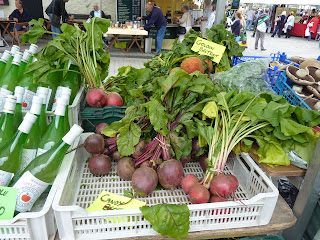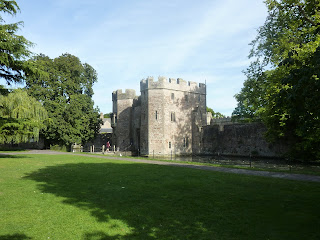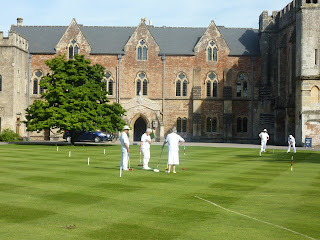My German student, Sabine, was a very unusual student, in that her English level is 'Proficient' (CEF). After spending her days teaching and supporting pupils with behavioural problems in Munich, she teaches English three evenings a week at night class.
She was also not interested in visiting the usual tourist sites, but wanted to go ' off the beaten track ' and and see and experience life as a local.
She also had a hire car and enjoyed driving......yes!!!!
One of the most challenging parts of running a homestay course is thinking about the student's needs, wants and interests and developing a flexible programme to meet them.
The study programme:
At this level course books are ineffective and mundane -
What did Sabine need?
New vocabulary - collocations, idioms, phrasal verbs, prepositions and speaking and listening.
But from where?
As Sabine loves literature, I decided to plan the course around the study of English short stories. I chose 'The Oxford Book of English Short Stories", edited by A.S.Byatt
Byatt states in her introduction to the collection, that she did not look for stories that would give images of England or of the Empire, but stories where both the narrative and writing were startling and satisfying, and, 'if possible, make the hairs on the neck prickle with excitement, aesthetic or narrative".
The five hours of lessons each day, evolved into Sabine reading the story chosen the day before, which she pre-read for homework the night before, looking up new vocabulary and phrases,( three hours).
Then two hours of musings and discussion.....wonderful!!
The social programme:
Students get two afternoon / evening accompanied activities each week and a full day accompanied excursion at the weekend.
Monday - cinema - "One Day" A big weepie, we both sat there blubbering.
Thurday - visit to Coates Willow and Wetland Center
Sabine and I at "Coates' Willows" |
Saturday - Visit to Mulcheney Abbey with Millie who was home for the weekend.
Mulcheney Village Church |
This building was at one time the monk's outdoor toilet |
Millie and Sabine sneaking a swift goblet of mead from the monk's refectory Some Aging Rockers |




























































